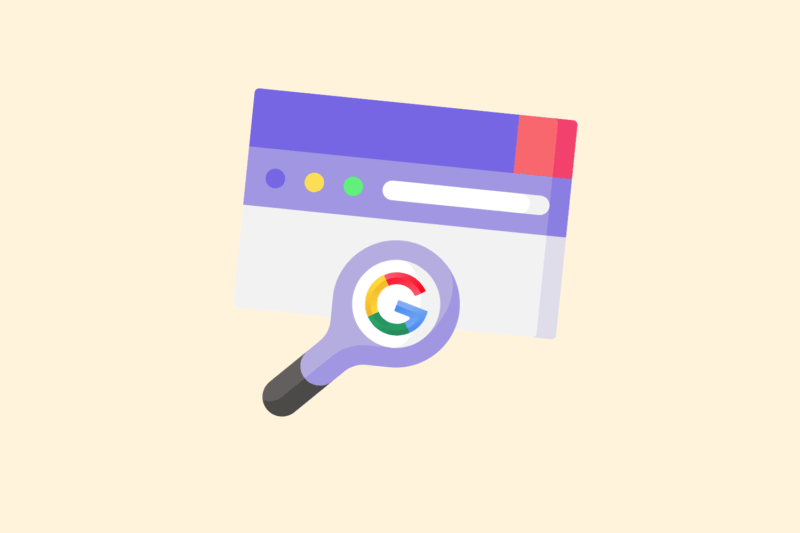Becoming findable in Gemini: the differences from Google Search

Google Search has been the starting point of virtually every online search for years. But with the introduction of Gemini (formerly Bard), that is changing. Where the classic search engine gives you a list of links, Gemini delivers direct answers, generated based on AI.
The user no longer has to click through, because the information is directly on the screen. This requires a different way of thinking about findability.
What is Gemini?
Gemini is Google’s own AI model, which was previously Bard. This AI model is integrated into Google products such as Search, Gmail, Docs and Android. It forms the core of Google’s AI approach. In Search, you can recognize Gemini by the so-called Search Generative Experience (SGE): an AI answer block at the top of search results, where the user immediately sees explanations, summaries or step-by-step instructions.
What happens here is fundamentally different from the classic search engine: Gemini answers a question rather than just providing suggestions. That means content must not only rank well, it must also be useful as a direct answer.
How is Gemini different from Google Search?
To become easily findable in Gemini, I need to understand where the differences are with Google Search. Below I explain the most important aspects.
1. From clicks to generation
Google Search displays links to pages. The user chooses and clicks. In Gemini (SGE), the answer is generated from multiple sources.
So the user does not necessarily have to go to my website, provided my content is visible in the response block.
That means the main criterion for good visibility changes from “being high in the SERP” to “being included in the AI response.
2. Other selection criteria
Whereas Google Search relies on ranking factors such as backlinks, authority and user behavior, Gemini looks primarily at:
- Information Value
- Clarity of construction
- Relevance to the question
- Recentness of information
In practice, I find that pages that provide quick and clear answers to a concrete question are more likely to be included in Gemini’s output, even if they are not in position 1 in the organic results.
3. Content snippets instead of whole pages
Google Search displays a snippet of content and then redirects the user to the website that contains the content. Gemini, on the other hand, extracts a specific snippet from my text and places it in the generated response. That makes high-quality content more important than ever.
So I always write sections that stand alone, as mini-answers to a specific user question.
4. Less reliance on technical SEO
Although technical optimization (such as structured data and Core Web Vitals) still plays a role in Google Search, I find that Gemini looks primarily at the content itself. Clearly written text, good structure and understandable language make a bigger difference than, say, page speed.
Getting started with SEO? Feel free to get in touch.

How I optimize my content for Gemini
Based on these differences between Google Search and Gemini, the strategy must be adjusted. These are the main choices I make when writing:
1. Demand-driven construction
I structure pages around concrete questions from users. Each H2 is a question, and each answer begins directly under that heading. This way, I increase the likelihood that Gemini will use text from Ralfvanveen.com as an answer snippet.
2. Compact, clear formulations
Long, cumbersome sentences don’t work in a generated response. I opt for short sentences, active language and clearly separated paragraphs. Each section should be able to be read separately without missing context.
3. Add context and timeliness
Gemini appreciates content that is current and placed in context. I therefore refer to years, developments and sources. Not a dry definition, but a complete answer in which nuance and application are also named.
4. Working on E-E-A-T
Because Gemini stems from Google Search, the principles of E-E-A-T (Experience, Expertise, Authoritativeness, Trustworthiness) remain relevant. I establish myself as an expert, refer to my own experiences and make sure my name, background and other relevant content pages are highly visible.
What does this mean for your SEO strategy?
There is an increasing shift from purely keyword-driven SEO to content optimization for AI answers. The focus is now not just on high rankings in Google, but rather on how to become visible in direct AI answers.
Definitely don’t choose between SEO and AI optimization, but tackle both at the same time. By creating content that ranks well in Search AND is ready for use by Gemini, you maximize visibility on multiple layers.
Summary
Gemini is changing the way search traffic originates. Users are getting their answers faster, often without a click-through. But in those very AI answers lies an opportunity: those who respond well to Gemini’s preferences become the new source of truth.
Want to know if your content is suitable for this new search experience? Wondering how you can stay visible in both Search and Gemini? Feel free to send me a message. I’ll think with you and help you make a difference in Google’s AI search engine as well.






